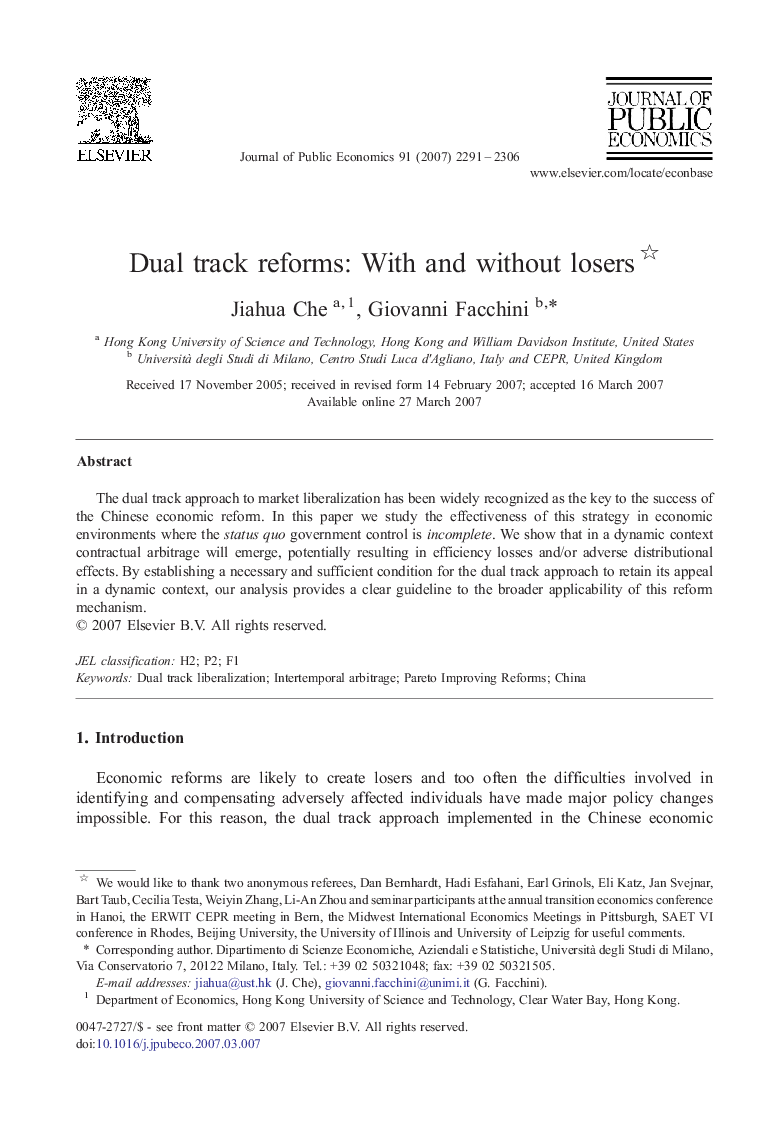| Article ID | Journal | Published Year | Pages | File Type |
|---|---|---|---|---|
| 970307 | Journal of Public Economics | 2007 | 16 Pages |
Abstract
The dual track approach to market liberalization has been widely recognized as the key to the success of the Chinese economic reform. In this paper we study the effectiveness of this strategy in economic environments where the status quo government control is incomplete. We show that in a dynamic context contractual arbitrage will emerge, potentially resulting in efficiency losses and/or adverse distributional effects. By establishing a necessary and sufficient condition for the dual track approach to retain its appeal in a dynamic context, our analysis provides a clear guideline to the broader applicability of this reform mechanism.
Keywords
Related Topics
Social Sciences and Humanities
Economics, Econometrics and Finance
Economics and Econometrics
Authors
Jiahua Che, Giovanni Facchini,
